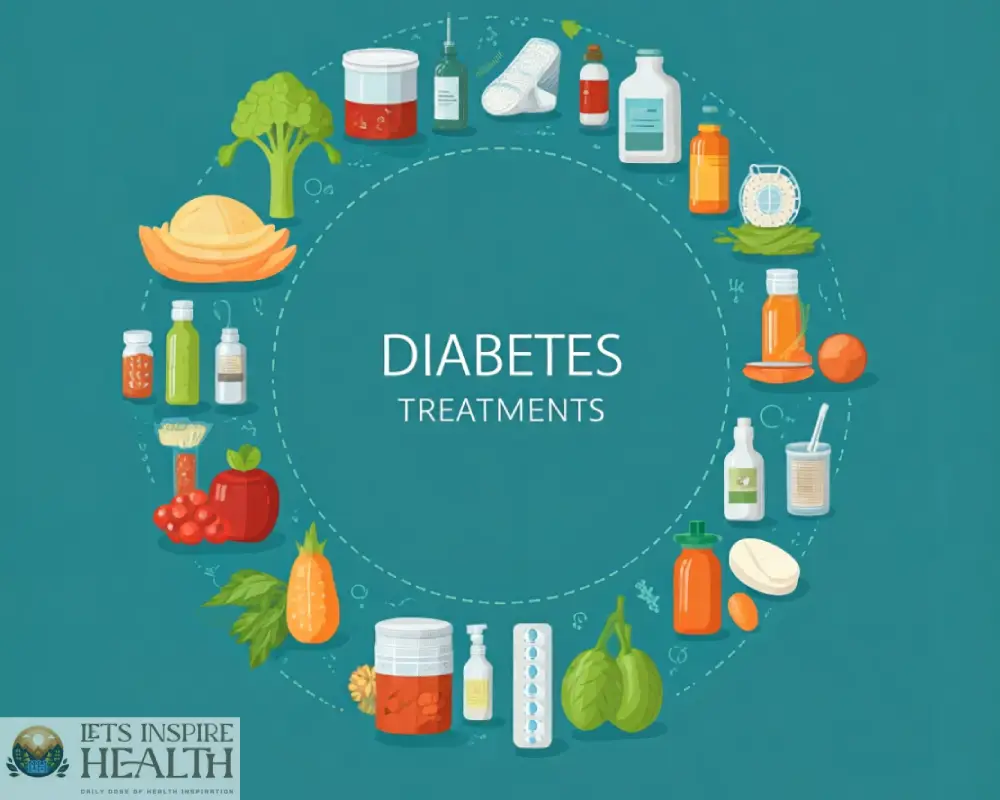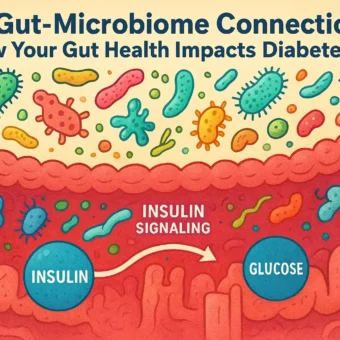Introduction: Managing Diabetes with Confidence
Living with diabetes doesn’t mean your life has to be full of restrictions and uncertainties. With the right treatment plan, you can lead a healthy, active life. From lifestyle changes to medical interventions, this blog explores the best treatments for diabetes, helping you make informed decisions for better health.
Understanding Diabetes: Types and Challenges
1. Types of Diabetes
- Type 1 Diabetes: Often diagnosed in childhood, this autoimmune condition requires insulin therapy.
- Type 2 Diabetes: Common in adults, this type can often be managed with lifestyle changes and medication.
- Gestational Diabetes: Occurs during pregnancy and may resolve after delivery but increases the risk of Type 2 diabetes later.
2. The Importance of Treatment
Effective management is crucial to prevent complications such as heart disease, kidney damage, and nerve problems.
Lifestyle Changes: The Foundation of Diabetes Management
1. Balanced Diet: The Role of Nutrition
- Focus on whole grains, lean proteins, and plenty of vegetables.
- Limit processed foods and sugary drinks.
2. Exercise: Boosting Insulin Sensitivity
- Aim for at least 150 minutes of moderate-intensity exercise weekly.
- Activities like brisk walking, swimming, and yoga can significantly help manage blood sugar.
Step-by-step guide:
- Start with a 10-minute daily walk.
- Gradually increase intensity and duration.
- Add resistance training twice a week.
Medications and Medical Interventions
1. Insulin Therapy
- Essential for Type 1 diabetes and sometimes for advanced Type 2 diabetes.
- Administered via injections or pumps.
2. Oral Medications
Common options include:
- Metformin: Lowers glucose production in the liver.
- Sulfonylureas: Stimulate insulin release from the pancreas.
3. Advanced Therapies
- Continuous Glucose Monitors (CGMs): Provide real-time glucose readings.
- Insulin Pumps: Deliver precise insulin doses.
Natural Remedies: Complementing Conventional Treatments
1. Herbs and Supplements
- Cinnamon: May improve insulin sensitivity.
- Fenugreek: Helps reduce blood sugar levels.
2. Stress Management
- Mindfulness practices like meditation and deep breathing can lower stress-induced blood sugar spikes.
Comparing Treatment Options
| Treatment Type | Pros | Cons |
| Lifestyle Changes | Affordable, sustainable | Requires consistency |
| Medications | Effective in most cases | Possible side effects |
| Natural Remedies | Minimal side effects | Limited scientific backing |
Checklist for Effective Diabetes Management
✅ Follow a balanced diet
✅ Exercise regularly
✅ Take medications as prescribed
✅ Monitor blood sugar levels
✅ Manage stress effectively
Frequently Asked Questions
Can diabetes be cured?
Currently, there is no cure, but it can be effectively managed to lead a healthy life.
Is natural treatment effective?
Natural remedies can complement medical treatments but should not replace them. Always consult your doctor.
Conclusion: Choose What Works Best for You
The best treatment for diabetes varies from person to person. A combination of lifestyle changes, medications, and supportive remedies is often the most effective strategy. Work closely with your healthcare provider to tailor a plan that suits your needs.
Disclaimer:
This blog is for informational purposes only and should not be considered medical advice. Always consult a healthcare professional for personalized guidance regarding your health.







